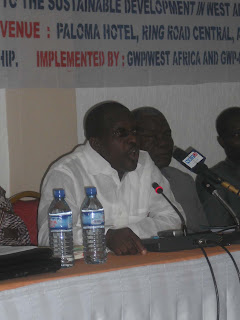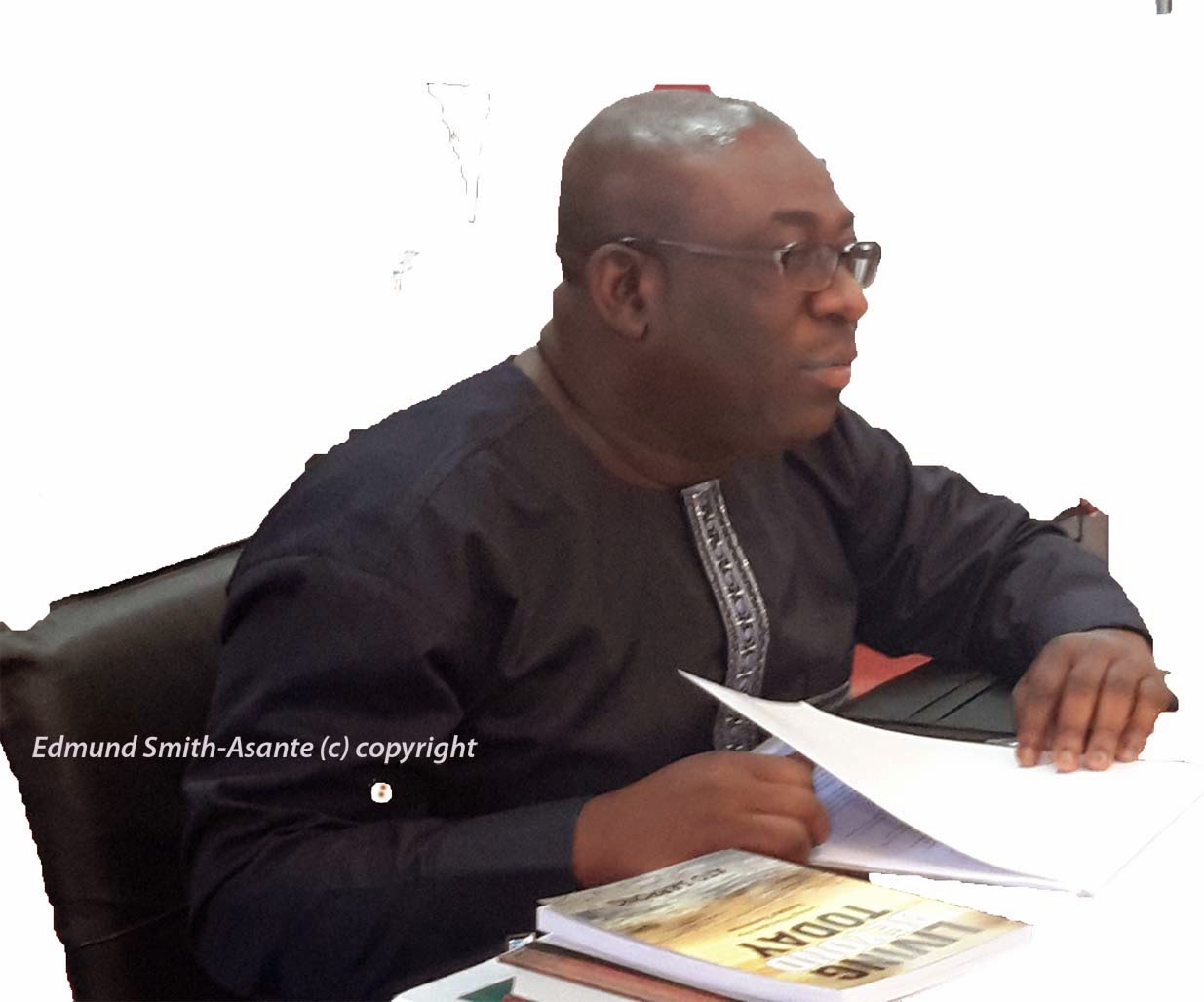Bagbin Urges Journalists to Be Bold ...Says Political Power is More Slippery Than Okro
EDMUND SMITH-ASANTE
Minister for Water Resources, Works and Housing, Hon. Alban Sumana Kingsford Bagbin, has charged journalists to be bold in their reportage on water and sanitation issues and not be afraid of politicians in the performance of their duty.
The sector minister, who gave the charge on Friday when he addressed the closing ceremony of a training workshop for over 40 selected West African journalists in Accra, said “I am also confident that participants leave this workshop with all the courage to report the facts as they are but not to pander to the whims of the various political leaderships in their countries and communities.”
“I am sure it has empowered you enough to be able to rise up to the challenge and to have the courage to confront political leadership everywhere you go, to re-prioritise to make sure that water comes next to air,” he stressed.
“Please don’t chicken out when you are threatened. Political power is more slippery than okro and is very transient. You are there, and you will last – the politicians don’t last; even the dictators, so please stand by the water agenda,” he pleaded with the participants.
Global Water Partnership – West Africa in collaboration with the Ghana Country Water Project (CWP), organised the workshop under the auspices of the Ministries of Information and Water Resources, Works and Housing, which was sponsored by the European Union (EU) and attracted participants from 14 West African countries.
Organised as part of GWP’s Programme for the Improvement of Water Governance in West Africa (PIWAG), it was under the theme; “The contribution of big water infrastructures to the sustainable development of countries in West Africa.”
Hon. Alban Bagbin asserted that as issues relating to the development and management of water are so sensitive and technical, it requires specialised journalists who would continually keep themselves updated.
“Such a group of specialised journalists would have to devise more creative and innovative ways of disseminating accurate information on water to the mass of our people,” he said.
He was therefore glad that GWP-West Africa has since 2007, annually been organising training workshops for journalists in the West Africa sub-region, to inform and sensitise them on current and emerging challenges related to the management of water resources, which brings to four, such workshops that have been organised so far.
The first was held in Bamako, Mali in 2007, the second in Niamey, Niger in 2008, while the third took place in Cotonou, Benin in 2009, with the fourth being the recent one in Accra, Ghana this month.
Hon. Bagbin said he had no doubt that the workshop had achieved its main objective of informing and sensitising the media men and women on the challenges to the management of water resources and their mobilisation for development purposes.
“The workshop has also succeeded in empowering spokespersons among media practitioners for better awareness raising, both at the level of political leaders and the respective populations for cultural and behavioural changes,” he stated.
He thus told the journalists, “I believe you all leave this workshop well equipped and committed to engage politicians and the riparian populations to a better knowledge of these challenges.”
The Water Resources Minister also praised the organisers for the inclusion of a large number of women journalists in the training, saying it underscores their recognition of two of the key guiding principles of the Dublin Conference of 1992.
He said those principles are that “Women play a central part in the provision, management and safeguarding of water” and that “Water development and management should be based on a participatory approach involving users, planners and policy makers at all levels.”
“It is my strong belief that our women of the inky fraternity would be adequately empowered to disseminate information on the need for an integrated management of water, including the fact that water should not only be seen as a social good but also as a commercial commodity which needs to be protected by all,” he concluded.





Comments
Post a Comment